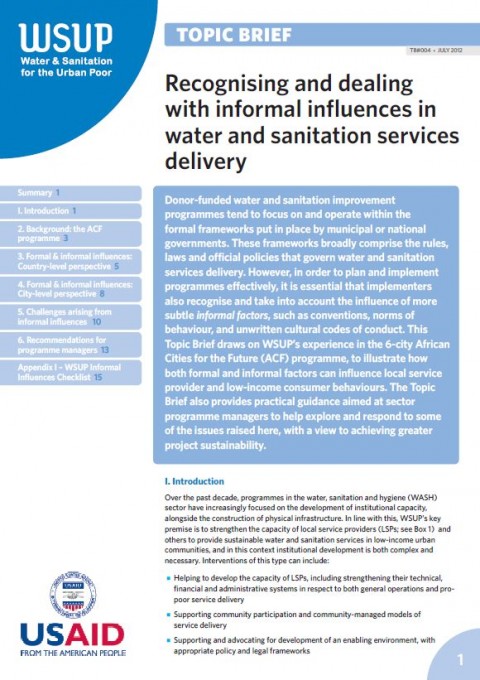Recognising and dealing with informal influences in water and sanitation services delivery
WSUP (2012)

Published in: 2012
Publisher:
Water & Sanitation for the Urban Poor (WSUP), London, UK
Author:
WSUP
Uploaded by:
SuSanA secretariat
Partner profile:
common upload
5284 Views
27 Downloads
Content - Summary
Donor-funded water and sanitation improvement programmes tend to focus on and operate within the formal frameworks put in place by municipal or national governments. These frameworks broadly comprise the rules, laws and official policies that govern water and sanitation services delivery. However, in order to plan and implement programmes effectively, it is essential that implementers also recognise and take into account the influence of more subtle informal factors, such as conventions, norms of behaviour, and unwritten cultural codes of conduct. This Topic Brief draws on WSUP’s experience in the 6-city African Cities for the Future (ACF) programme, to illustrate how both formal and informal factors can influence local service provider and low-income consumer behaviours. The Topic Brief also provides practical guidance aimed at sector programme managers to help explore and respond to some of the issues raised here, with a view to achieving greater project sustainability.
Bibliographic information
WSUP (2012). Recognising and dealing with informal influences in water and sanitation services delivery. Water & Sanitation for the Urban Poor (WSUP), London, UK
Filter tags
English Sub-Saharan Africa Urban (entire city)















